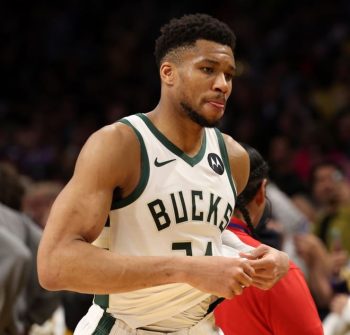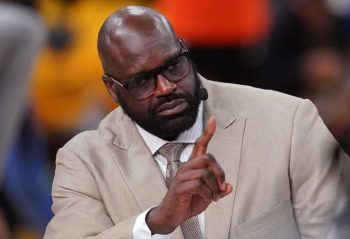NBA
NBA Daily: Quincy Pondexter Has Grown With New Orleans

By the time the New Orleans Hornets traded for the draft rights to Quincy Pondexter in the summer of 2010, the city was just starting to see some real progress in the reconstruction efforts that followed the half decade after Hurricane Katrina.
In February of that year, the New Orleans Saints won the Super Bowl, a victory that the city badly needed, and Pondexter found himself dropped into the sports culture of the league’s most unique city.
Now with the Chicago Bulls, Pondexter would only play in New Orleans for his rookie year before getting dealt to Memphis and signing a multi-year extension, but in late 2014 he was traded back to New Orleans, who had rechristened themselves the Pelicans by that point. He couldn’t believe how much had changed in just four short years.
“You stopped seeing the spray paint on the houses, and the prices start going up on real estate. It was definitely a lot different coming back,” Pondexter told Basketball Insiders. “I remember I had a house there, when I first got there as a rookie, and it was very, very cheap. But when I came back, I had a place probably twice as small for almost double the price. The city had just grown and developed a lot more, especially the downtown areas where you could start seeing buildings being built. You’d start to see the city come back to form, come back to life, and I really, really got to enjoy it my second time.”
That sort of progress was slow to come by 2010, however. Despite five years having passed since the initial devastation of Katrina, New Orleans was finding slow progress toward physical and emotional healing. The team had just moved back to the city full-time a couple of seasons prior after having played a good number of games in Oklahoma City during Louisiana’s recovery, but Pondexter remembers the Hornets giving the people of the city something to root for, too.
“The Saints, when you win a championship, when you’ve been there for years, of course you’re going to be the favorite, but, when the Hornets were part of that, too,” he said. “When you win games, and I had the chance to go to the playoffs with two different stints with them, I think it’s embracing how much the city comes together once you make an achievement like that, and whether you’re at the grocery store, gas station, whatever, people are always going to talk to you about the game of basketball. They don’t talk to you like a fan in New Orleans; they talk to you like a family member. It was really cool to be in a city like that.”
He also admitted that it was exciting to play even a small role in helping New Orleans continue to heal.
“It was a unique experience because the city was rebuilding, and being able to be a part of helping put it back together, it was really special,” he said. “We had an unbelievable star in Chris Paul, and you just don’t realize how much people lean on sports to get through tough times. We bridged that gap, and it was a real unique community to help refurbish the city of New Orleans.”
Coming back four years later, Pondexter had grown up a lot, and while a lot of his next few years with the Pelicans would be plagued by a torrent of medical problems ranging from knee issues to a staph infection, he did get to spend a lot more time in the city after having been there for only a year as a rookie in 2010-2011. That’s when he really fell in love with New Orleans.
“The culture, the melting pot culture, the rich history, it’s so much different from anywhere else in the country,” he said. “I grew up in Fresno, California, went to school at the University of Washington, and New Orleans is just something unique, and I could always say I learned so much from a city like that, about our country, about life, about so many things. About music, about food, about everything in that city, you just really learn so much. It’s a city where you get to put your hair down, and just enjoy being alive.”
Time passes quickly in any NBA career, but playing two times for one team several years apart can’t help but give a person some perspective, which is what it has done for Quincy Pondexter.
“You grow up, you learn the game of basketball, you learn a lot about yourself, and you see what you want in life more,” he said. “I think that was a really big pivotal moment in my life, one I’ll never ever forget.”











